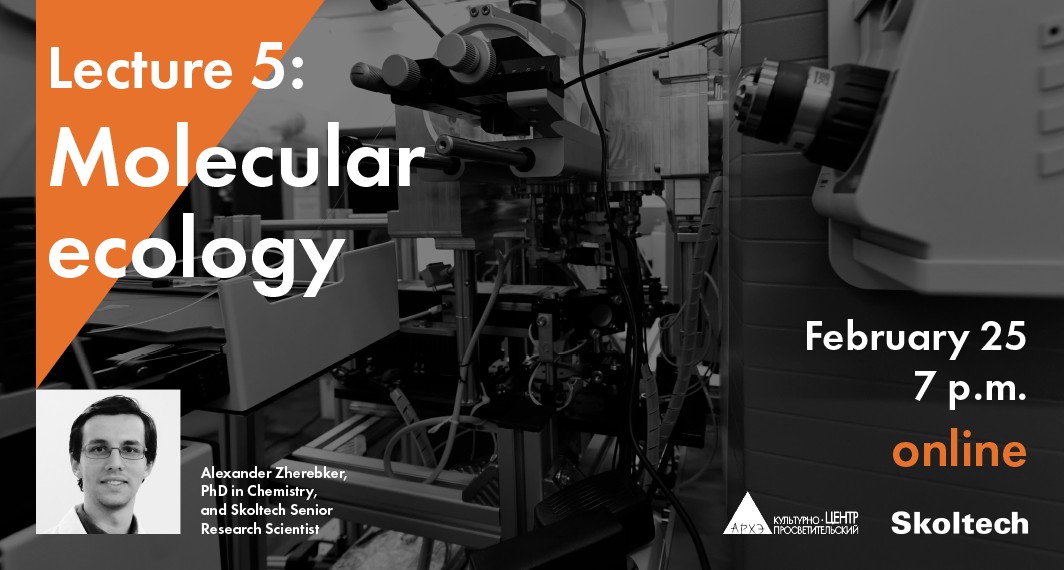Skoltech Lecture Hub at ARHE presents a new online course of lectures: State-of-the-Art Mass Spectrometry.
Lecture 5: Molecular ecology.
The mass spectrometer is a research instrument that ranks among the world’s greatest inventions. Mass spectrometry that helps weigh an individual molecule’s weight has become a fixture in doping research, medicine, ecology, and even museums.
Modern ecology and biogeochemistry show a clear trend towards multi-faceted study of diverse relationships and mutual influences between organisms and the environment. Molecular ecology methods help glean valuable information on the origin, diversity, and evolution of all ecosystem components, provide an insight into global natural processes and a possibility to predict and find ways to control changes in the living environment.
What is the natural carbon cycle like? What is natural organic matter composed of and how can mass spectrometry help in studying objects of nature? Why are some water reservoirs colored? How did carbon evolve and what is permafrost? What is oil made of? What do we know about extraterrestrial organic matter, meteorites, and lunar soil? Join Alexander Zherebker’s lecture to find out answers to these questions.
Speaker: Alexander Zherebker, PhD in Chemistry and Senior Research Scientist at the Skoltech Center for Computational and Data-Intensive Science and Engineering (CDISE).

